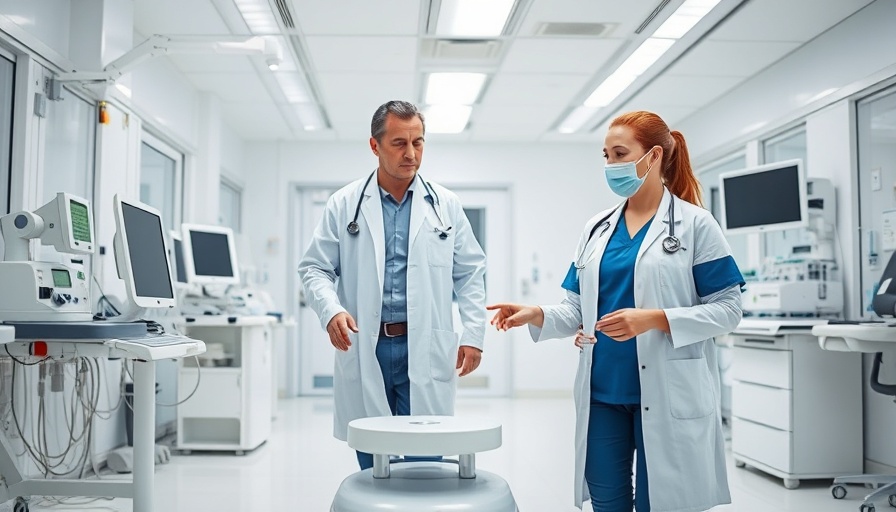
Transforming Rehabilitation: The Rise of Mechatronic Technology
The world of rehabilitation is evolving, as new technologies pave the way for more effective patient care. A groundbreaking development by the COMPMECH research group at the University of the Basque Country has introduced a mechatronic prototype aimed at assessing and rehabilitating balance problems in patients, particularly those who have suffered strokes or similar impairments. By utilizing a mobile platform that assesses a patient's response to balance stimulation, this innovative tool promises to enhance rehabilitation practices significantly.
Understanding the Mechanics of Balance
Balance is a fundamental aspect of mobility and daily activities. The innovative device developed in Spain works by stimulating a person’s balance, effectively measuring the center of pressure during movement. This concept can be likened to the experience of maintaining balance on a moving bus; your body automatically adjusts its weight in response to shifts in motion. By analyzing how patients manage their weight distribution through the tool, therapists gain valuable insights that were previously difficult to measure objectively.
The Need for Objectivity in Rehabilitation
Traditional assessment techniques in physical therapy often hinge on subjective observations and can vary significantly between practitioners. This inconsistency is particularly evident in stroke rehabilitation, where accurate evaluations can directly influence the quality of care received. The COMPMECH prototype aims to address this critical issue by implementing standardized protocols that enhance the objectivity of balance assessments, ensuring that rehabilitation is both measurable and adaptable to each patient’s unique needs.
Integration and Collaboration with Healthcare Practitioners
Successfully integrating new technologies into existing healthcare frameworks requires collaboration among diverse professionals. The COMPMECH research group has partnered closely with Gorliz Hospital to develop this prototype, aligning technological capabilities with clinical needs. This synchronized effort not only drives innovation but also nurtures a deeper understanding of how technology can influence patient outcomes, inviting concierge health practitioners to stay informed about advancements that could benefit their patient populations.
Future Trends: The Potential Impact of Mechatronics
As rehabilitation technology continues to develop, the potential for mechatronic devices to reshape therapeutic strategies grows exponentially. This innovation does not only promise to enhance patient recovery but also offers a platform for continuous monitoring of patient progress over time. Future iterations of this technology could lead to personalized rehabilitation programs tailored to individual progress and requirements. Such advancements can ultimately lead to improved recovery rates, reduced hospital stays, and cost-effective rehabilitation processes.
The Emotional and Human Connection in Rehabilitation
Behind every technological advancement lies a deeper human story. Rehabilitation is not merely about restoring physical balance but also about reintegrating individuals into their daily lives. The emotional journey of recovering from a stroke or similar ailment can be fraught with challenges, making supportive, empathetic care crucial. Technologies like this prototype offer hope, enabling a more direct path to recovery while supporting patients' emotional and psychological needs.
Conclusion: Embracing the Future of Patient Care
The introduction of this mechatronic prototype marks a pivotal moment in the intersection of technology and healthcare, specifically in the realm of rehabilitation. By improving the objectivity of assessments and streamlining processes, health practitioners can enhance their services and foster better recovery outcomes for patients. As we continue to explore these technological advancements, it is vital for concierge health practitioners to stay informed and adapt to new methodologies that can substantially benefit their practices.
 Add Row
Add Row  Add
Add 






Write A Comment